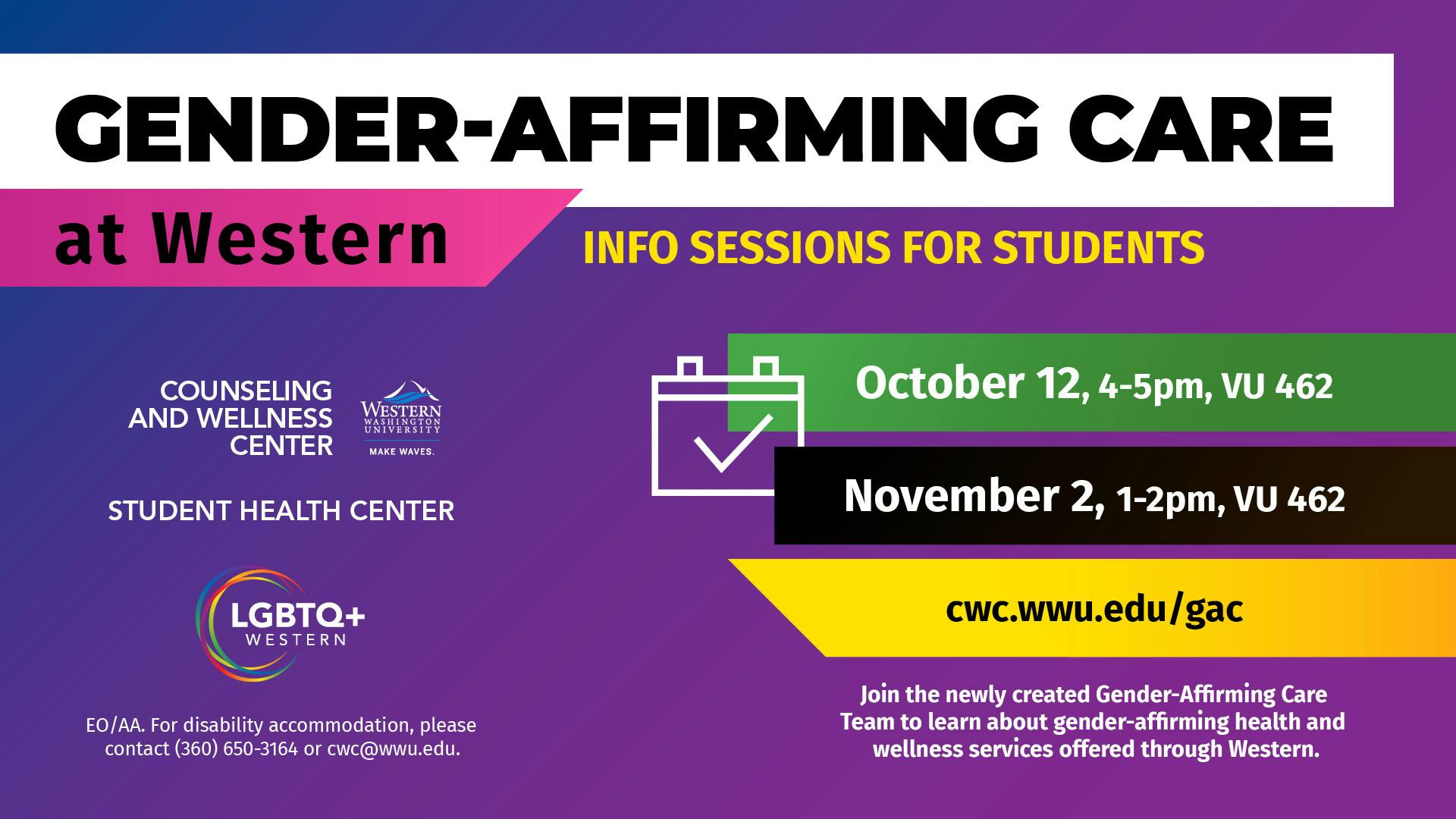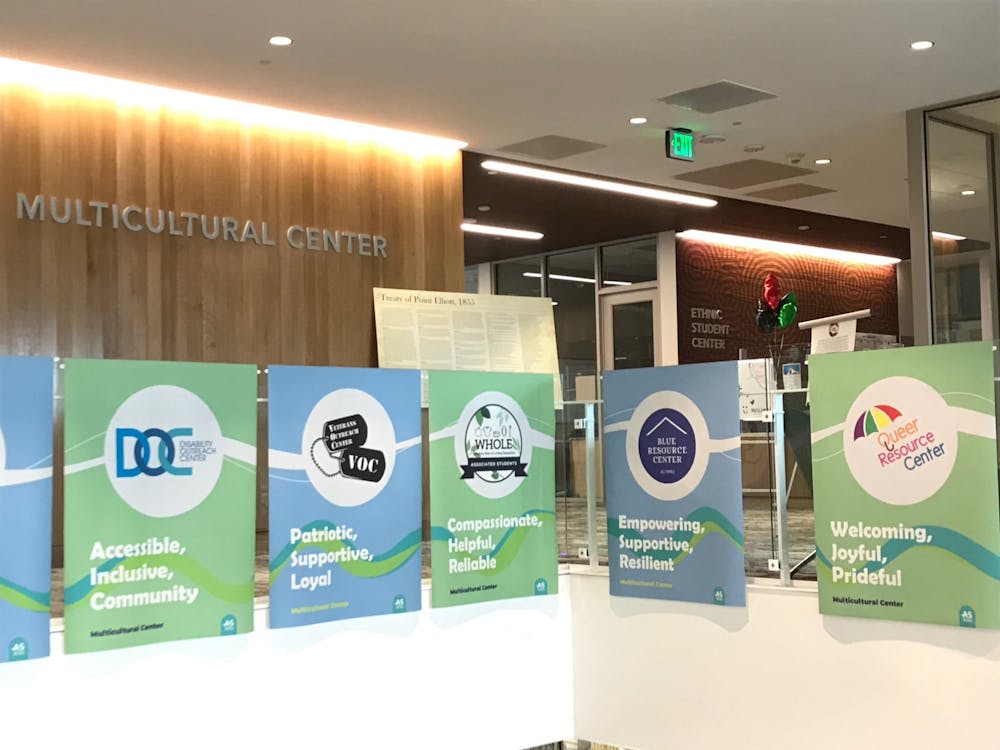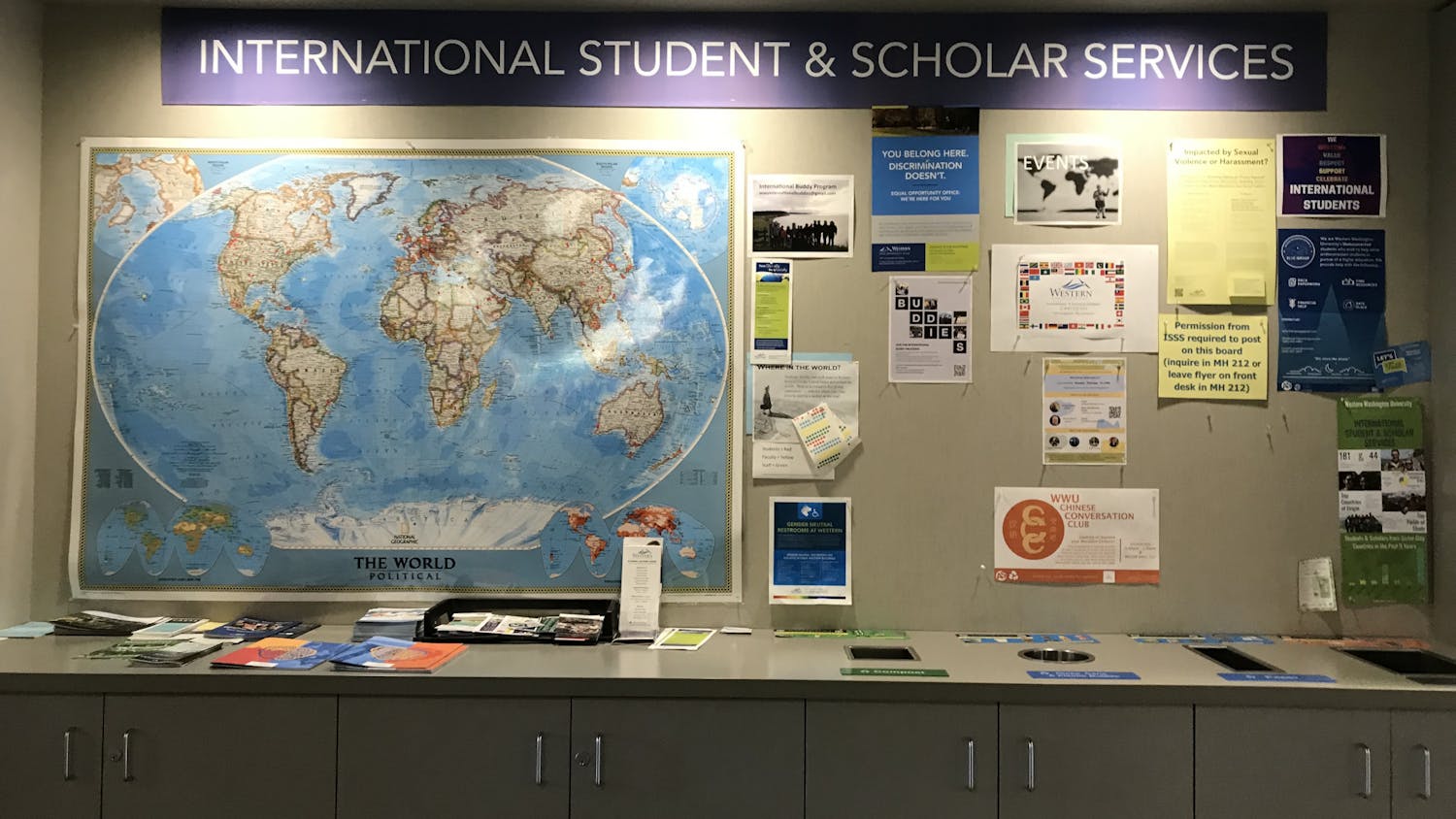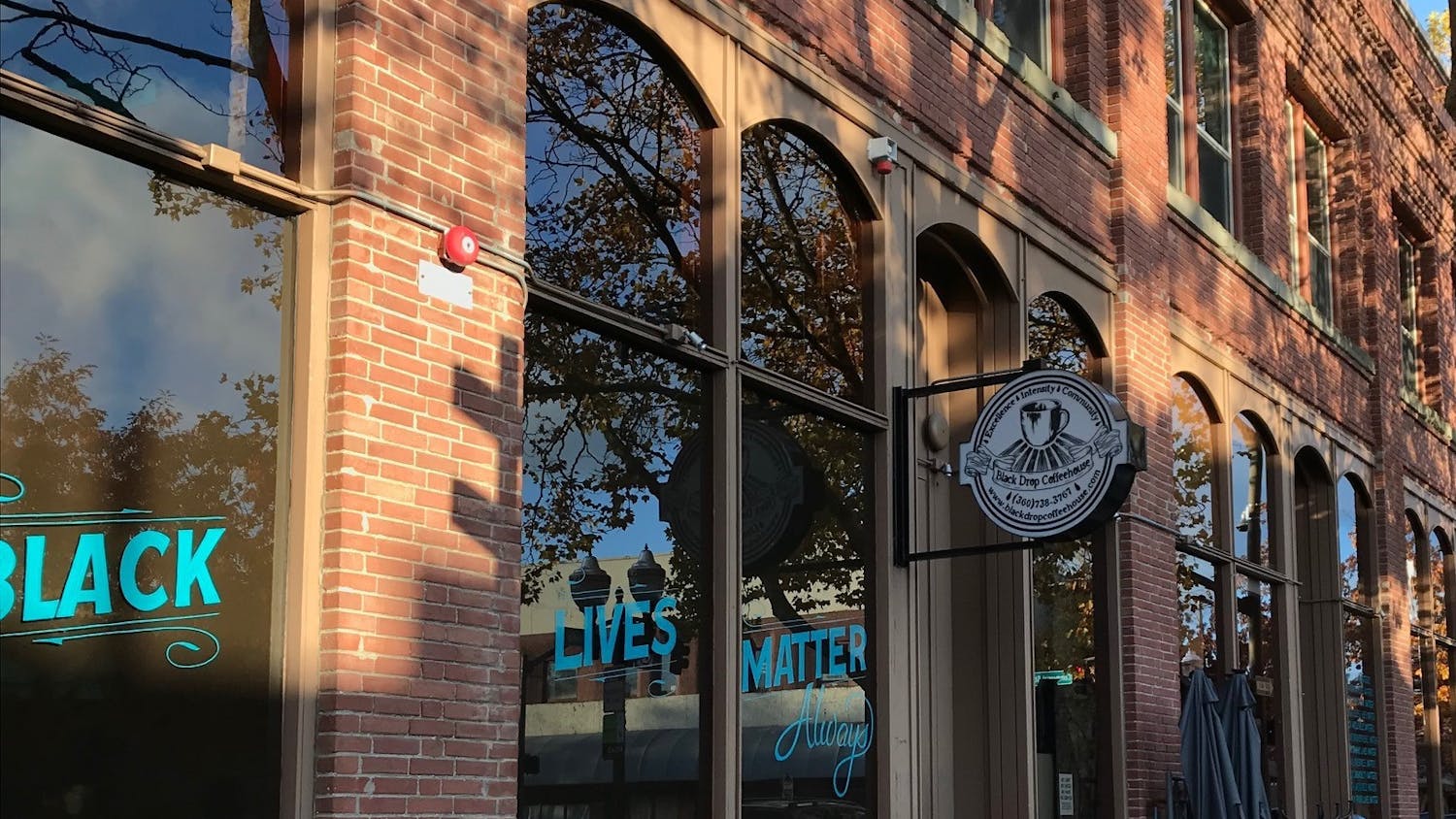Western Washington University is now hosting a new Gender-Affirming Care Team as a collaboration between various departments on campus including LGBTQ+ Western, the Student Health Center, the Counseling and Wellness Center and the Speech-Language-Hearing Clinic.
This program supports students who are interested in taking steps to transition in ways that better reflect their gender. This includes connecting them with various on-campus and off-campus resources, counseling, starting gender-affirming hormones, connections to groups of other trans and queer students, social transitioning help, non-medical affirmation help and much more according to the team’s website.
“One of the important outlooks we bring to our work on the gender affirming care team is recognizing that each person's path to gender affirmation is valid and unique,” said Litav Langley, the LGBTQ+ director at Western. “There is no ... ‘right trajectory’ to moving toward being more affirming in one’s gender. So we recognize that students will have different needs and different curiosities, and those needs and curiosities will likely change over time.”
The program was available to students beginning spring 2020, and this fall is functioning as an official rollout of the services, according to Chris Edwards.
Edwards, a clinical psychologist and assistant director in the Counseling and Wellness Center, as well as the coordinator for outreach and health promotion in the department, has been a major voice in helping to form the Gender-Affirming Care Team.
“There was that recognigtion that there’s a good percentage of the Western student population who identifies within the LGBTQ+ spectrum and then a good percentage of folks who identify as trans or non-binary or gender non-conforming, and we want to ensure that we could provide holistic care to these students,” Edwards said.
This collaboration came about as various departments were already providing aspects of gender-affirming care to students, and this collaboration was a way for them to bring these departments together and provide a more seamless way for students to access them, Langley said.
“We want to provide multiple elements of social connection, mental health support, gender-affirming medical care, resources for survivors of violence all in ways that are trans-informed and support student’s agency,” Langley said. “And we recognize that students know best who they are and what they need.”
When Langley first ented their role as LGBTQ+ director, they started a workgroup at Western which focused on student health and wellness for transitioning students.
“One of the focuses of that group over time has been bolstering collaboration to provide gender-affirming care to students,” said Langley. “We recognized that the more we’re collaborating across departments the more services we can offer and the better, more relevant those services will be for students.”
Langley said the program has also begun connecting with student-run programs on campus, including the Associated Students Queer Resource Center and Team for Transgender and Gender-Nonconforming Students also known as TAG Team. They also host events like Trans Tea, which is geared towards trans-identifying students and allies.
“I am most excited broadly speaking about people being together in healthy and affirming ways that support their own personal development and the flourishing of our community,” Langley said. “I think that happens in so many ways around the university. It can happen in classrooms; it happens in Trans Tea; it happens when a student gets good medical care. And I’m excited for that, including ways the Gender-Affirming Care Team can be a part of making that happen.”

The Gender-Affirming Care program will host their second information session on Nov. 2 in the Viking Union from 1 p.m. to 2 p.m. // Photo courtesy of Litav Langley
Chantz Glover, the advocacy coordinator for the AS Queer Resource Center, describes the center as being a safe space for all queer-identifying students on campus.
“I think it’s super important just because when you’re learning to understand yourself and your own identity, it’s helpful to have others who have or are going through the same things,” Glover said, “especially for people who don’t already have that support in their lives.”
Many positive changes have come from the Gender-Affirming Care Team already, Litav said. The Student Health Center, for example, has begun initiating gender-affirming hormone therapy for students who wish to pursue that path, rather than only being able to continue existing prescriptions.
“There was this real need for initiating gender-affirming hormones through the Student Health Center,” Edwards said. “In the past, the Health Center would continue, or continue to manage, hormones if students had been on testosterone or estrogen, but they were not initiating hormones.”
Edwards said their first student information session drew in about 22 participants. Following faculty information sessions drew about 10 participants.
“On our end in the Counseling and Wellness Center, we’ve had a number of referrals for students who are wanting to either access services through the health center or meet with a counselor,” Edwards said. “It’s really great that we take an informed consent approach, which is kind of the best practice. And a lot of other organizations will use informed consent.”
Informed consent means students do not need a letter from a medical provider or mental health provider in order to access gender-affirming hormones, Edwards said.
“I think that providing these programs, both out of LGBTQ+ Western and out of the Student Health Center and Counseling and Wellness Center, are part of providing competent services as an enrollment of student services and division for our university,” Langley said. “I think that gender-affirming healthcare is a part of primary care.”
Langley encouraged interested students to get more information from the Gender-Affirming Care Team website.
“To reiterate, we encourage students to reach out to us if they have questions,” Langley said. “Contacting any one of our offices with questions is not committing oneself to getting services through our offices or going down a particular path. We recognize too that question asking and conversation are crucial to learning and finding the care that is best for an individual. So we encourage people to reach out.”
Edwards said Western has also worked closely with Harvard Medical School and The Fenway Institute, an organization thatadvocates for healthcare aimed at trans and gender-nonconforming individuals and those living with HIV, to help shape their growth of the program. He and Langley both hope to see the program expand and become something Western can be proud of.
“We should all be invested in having a university community that is healthy and caring for everyone who is a part of it,” Langley said.
Edwards hopes that soon all staff at Western will be better educated and equipped to provide gender-affirming care to students. This includes staff at the Counseling and Wellness Center as well as getting wider university faculty involved in the program.
“It’s really student centered in a way that honors and celebrates individual differences and kind of each person’s individual paths towards gender-affirmation,” Edwards said.






